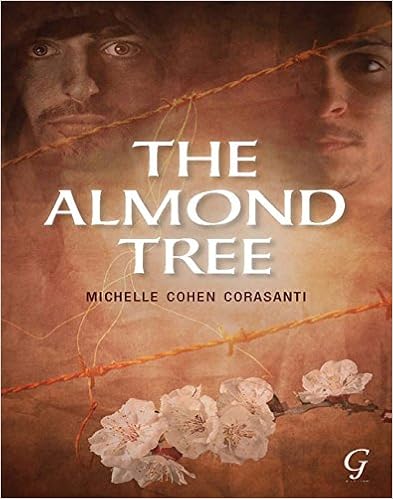Review of The Almond Tree by Michelle Cohen
Corasanti
1
Star
I looked
forward to reading this book because of the subject matter; unfortunately, the
novel was disappointing.
The book is
the fictional memoir of a Palestinian named Ichmad Hamid. Covering the years
from 1955 to 2009, the focus is on the extreme suffering of Ichmad’s large
family at the hands of the Israeli occupiers. Crisis follows crisis, although
Ichmad is able to better his life because of his intelligence.
A major
problem is the weak characterization. Ichmad’s portrayal is unrealistic as
evidenced in the repeated references to his exceptional abilities. From the
beginning Ichmad sees himself as different: “I knew from a young age that I
wasn’t like the other boys in my village” (14). He is “promoted by three
grades” (19) and, because he becomes a backgammon champion, he becomes “a
welcome and honoured guest . . . sort of a legend” (19) at the village tea
house. His father speaks of his eldest son’s “extraordinary mathematical mind”
(30) and his mother calls him “’my masterpiece’” (31). The village teacher
speaks of him as a genius (112) who will make his people proud (69). Despite
his limited education because he has to go to work to help support his family,
he aces a mathematics competition, graduates at the top of his class (198), and
in his research makes “tremendous progress” (263). And he is nominated for a
Nobel Prize “each of the last ten years” (338)!
To make
matters worse, Ichmad is exceptional in other ways. Twice he is a hero:
“[W]ithout fear,” he rescues a girl from a rabid jackal (80), and later he
saves two students from a fire (197-198). Twice it is mentioned that he works
“around the clock” (196, 289). His generosity knows no bounds: he buys his
nephews convertible Mercedes (324) and pays for the university education of
seventeen nieces and nephews. In his sixties, his body is “firm and strong from
years of running” (317), though not once is reference made to his running to
stay in shape.
Character
transformations are also incredible. A man “well known for his . . . dislike of
Arabs” (137) who may have beaten and arrested Ichmad’s father (159) becomes
Ichmad’s “closest friend” (344)? He is not the only one to undergo such a
miraculous change. When Ichmad first meets Yasmine, he says that everything
about her “screamed ignorance. Her veil, her thick, unplucked eyebrows, her
traditional robe. . . . Her teeth were yellow and were crooked and she was
plump” (271). She has “a ready array of excuses” (276) to not adapt to her new
life in the United States, but later she is described as wearing “tight black
trousers” (305) and having earned a “master’s degree in elementary education”
(310).
And then
there are the gaps and inconsistencies. Abbas “can barely walk” (253) yet twice
he travels a considerable distance to find his brother Ichmad (154, 187), and
both times he knows exactly where to find him at different locations on the
university campus. The village teacher tells Ichmad, “’If you win, I’ll find
jobs for your brothers in my cousin’s moving company’” (110), yet he doesn’t
keep his promise when his prize pupil wins the mathematics competition? A woman
is described as wearing a “lacy undergarment that conformed perfectly to the
round fullness of her breasts” (235), but she never wore bras (278)? A family
agrees not to tell a man about the death of his daughter “until he was
released” (57). When he is released fourteen years later, his first words to
his family are about the death of the daughter (207). When was he told? A
professor accuses Ichmad of cheating. A classmate, without ever being told
about the accusation, comments that the professor has become lazy (163). That
classmate “’figured out what happened’” (174), but the reader is never told how
Ichmad is cleared.
The writing
style is repetitious. When surprised, characters stare “with their mouths open”
(118). On the same page, another person is described: “His mouth was open”
(118). A classmate’s “mouth gaped open” (147) in awe at Ichmad’s skills at
backgammon. His brother stares at him “open-mouthed” (189). And the protagonist
stares with “mouth agape” (186). When Ichmad first sees a woman, she is
described as “the most beautiful thing I’d ever seen” (79) or “the loveliest
girl I’d ever seen” (218). Dialogue is unnatural. Why would Ichmad have to tell
his brother, who was there, “’Don’t forget, everything we owned was destroyed’”
(77) or that the Jews “’control over ninety per cent of the land’” (81)? Then
there are the lengthy advanced math problems (117 – 118, 139, 201) which serve
virtually no purpose in a work of fiction.
Symbolism
is simplistic. The almond tree and olive trees at the back of Ichmad’s family
home are the major symbols. Ichmad says, “They reminded me of my people. . . .
I’d marveled that despite their exposure to beatings, arid landscape and fierce
heat, the trees survived and bore new fruit year after year, century after
century. I knew their strength lay in their roots which were so deep that even
if the trees were cut down, they survived and sent forth shoots to create new
generations. I always believed that my people’s strength, like the olive
trees’, lay in our roots” (207 – 208). The symbol should speak for itself; it
should not need to be explained.
There is no
doubt that the author is passionate about the Palestine-Israel conflict.
Certainly, the Palestinian perspective needs to be given, and to have a Jewish
American attempt to do so is daring. It is unfortunate that the skills required
to write a good novel are missing.

No comments:
Post a Comment